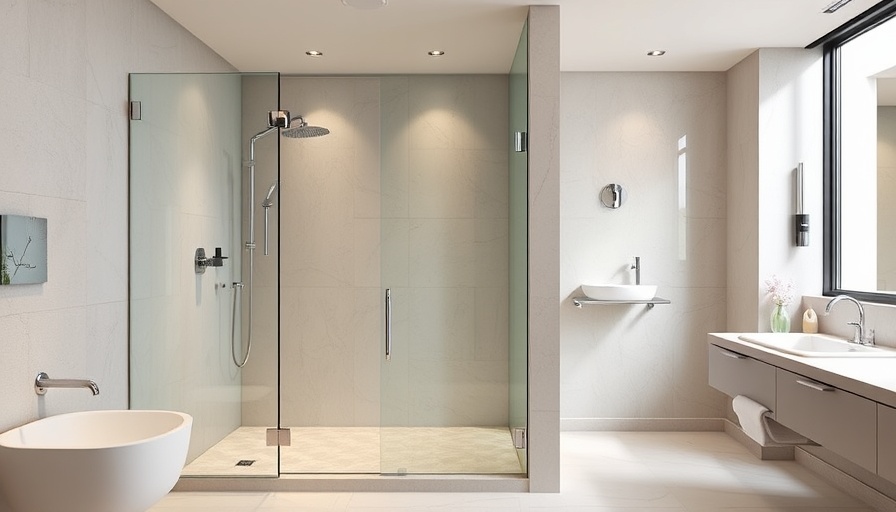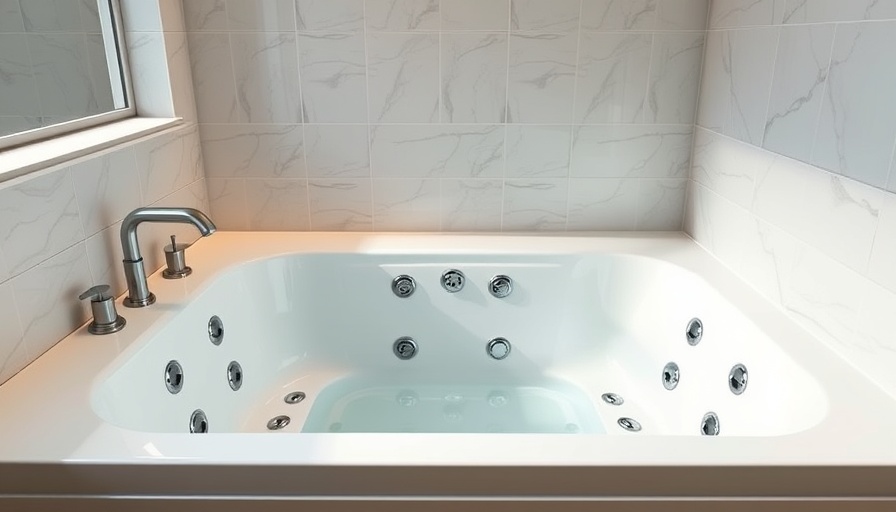
Understanding the Value of Barrier-Free Showers
As we age or face mobility challenges, the necessity for accessibility in our homes becomes paramount. Barrier-free showers exemplify this need by combining aesthetics with functionality. Unlike traditional showers, these designs enhance safety by eliminating barriers, and they can transform the bathing experience into a more independent and dignified one. In Toms River, homeowners are not just investing in renovations; they're investing in their well-being and comfort.
Why Are Barrier-Free Showers Gaining Popularity?
In recent years, the trend towards barrier-free showers has skyrocketed, reflecting a societal shift in understanding the critical role of accessibility in home design. The rising awareness of inclusive living spaces makes these installations appealing not only to individuals with mobility issues but also to a broader audience who value modern, sleek designs that improve the overall functionality of their bathrooms.
Cost Breakdown: What Should You Expect?
The average cost of installing a barrier-free shower in Toms River typically falls between $3,000 and $8,000, but this can climb to over $15,000 based on various factors. These include the size of the installation, quality and type of materials chosen, and the complexity of the project. Here’s a quick breakdown:
- Materials: Basic materials for a standard shower can range from $1,500 to $4,000, with premium options costing more.
- Labor: Labor prices vary with experience, usually between $50 and $150 per hour depending on the skill set required for customization.
- Additional Features: Options like built-in seating, advanced fixtures, and grab bars can add to costs but are often worth the investment for enhanced usability.
Factors Affecting the Cost of Your Installation
The factors influencing installation costs of barrier-free showers are numerous, and understanding them can help in budgeting effectively. Here are key elements to consider:
- Bathroom Size: Small constraints can require significant remodels, impacting both labor and materials.
- Complexity of Installation: Customized configurations often necessitate more intricate plumbing and tiling work.
- Material Choices: Investing in high-grade tiles and durable materials can elevate both the look and longevity of your shower.
- Contractor Experience: While higher-skilled contractors may charge more, they typically offer better outcomes and compliance with building regulations.
Connection to Community and Market Trends
In Toms River, homeowner interest in barrier-free showers also reflects societal values around inclusivity. As communities age and the population shifts towards a larger percentage of seniors, the push for accessible home modifications becomes not just beneficial, but essential. This connectivity between individual needs and community resources fosters a space where homeowners can feel secure in their investment.
Final Thoughts: Making an Informed Decision
Investing in a barrier-free shower is more than just a home improvement—it's about enhancing the quality of life for you and your loved ones. By considering the various costs and options available, homeowners can make informed decisions that best fit their needs and budget. As demand continues to rise, staying ahead of trends and choosing quality will ensure that these installations serve their purpose for years to come.
With a wealth of information available, it's vital to evaluate your options carefully and consult professional resources when stepping into your renovation project. Whether you’re looking for a balance between affordability and quality or wish to explore luxurious features, taking the initiative to make your home barrier-free is a step in the right direction.
 Add Row
Add Row  Add
Add 




Write A Comment